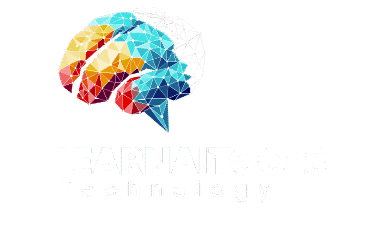
AI in Pharma 2025 – Transforming the Future of Healthcare and Medicine
Introduction
AI in Pharma 2025 is not just a buzzword—it is a revolution shaping the future of healthcare, medicine, and drug discovery. Artificial intelligence is helping pharmaceutical companies design new drugs faster, optimize clinical trials, predict patient outcomes, and improve supply chain efficiency. Unlike traditional methods that take years and billions of dollars to bring a drug to market, AI-powered systems are accelerating the process, making treatments more affordable and accessible.
The year 2025 marks a turning point where AI adoption in pharma is no longer optional but essential. Companies that leverage these advancements responsibly will lead the industry, while others risk being left behind.
The Rise of AI in Pharma 2025
AI in Pharma 2025 is driven by three key factors—big data, advanced algorithms, and increased computing power. The pharma industry deals with massive volumes of biological data, patient records, and molecular structures. AI analyzes this data faster than humans ever could, identifying hidden patterns and correlations that lead to breakthrough innovations.
This shift is helping pharmaceutical companies shorten drug development timelines, reduce costs, and minimize risks associated with clinical testing. As a result, new medicines are reaching patients in record time, addressing diseases that were once thought incurable.
Drug Discovery and Development with AI
One of the most significant contributions of AI in Pharma 2025 is in drug discovery. Traditional drug development often takes 10–15 years, but AI is compressing this timeline drastically. Machine learning models can predict how molecules will interact with specific proteins, enabling scientists to design effective drugs in months instead of years.
For example, AI-powered simulations allow researchers to test millions of compounds virtually before moving to physical lab testing. This not only saves money but also reduces dependency on animal trials, making drug research more ethical.
Clinical Trials Made Smarter
A major challenge in pharma is the high failure rate of clinical trials. With AI in Pharma 2025, this problem is being addressed through predictive modeling and real-time monitoring. AI algorithms analyze patient eligibility, predict possible side effects, and ensure that the right candidates are selected for trials.
Moreover, AI can monitor patient responses in real time, allowing researchers to adapt and make trials more efficient. This dynamic approach reduces costs and speeds up the approval process for life-saving drugs.
Personalized Medicine and Patient Care
AI in Pharma 2025 is enabling the era of personalized medicine. Instead of a one-size-fits-all approach, AI helps doctors tailor treatments based on a patient’s genetic profile, medical history, and lifestyle. This improves treatment outcomes while minimizing adverse effects.
For instance, AI can predict how a patient with specific genetic markers will respond to cancer drugs, allowing doctors to prescribe the most effective treatment from the start. This personalized approach reduces trial-and-error in medication and saves lives.
Supply Chain and Manufacturing Optimization
The pharmaceutical supply chain is complex, but AI in Pharma 2025 is making it more resilient. AI predicts demand, monitors inventory levels, and ensures timely delivery of medicines worldwide. During emergencies like pandemics, AI helps companies anticipate shortages and scale production efficiently.
In manufacturing, AI-powered systems maintain strict quality standards, ensuring that drugs are produced consistently and safely. Predictive maintenance powered by AI also reduces equipment downtime, improving overall productivity.
AI in Pharma 2025: Ethical and Regulatory Challenges
While the benefits of AI in Pharma 2025 are undeniable, challenges remain. Ethical concerns about patient data privacy, algorithmic bias, and regulatory compliance must be addressed. AI systems must remain transparent, explainable, and accountable to avoid misuse.
Regulators worldwide are already working on new frameworks to ensure responsible AI adoption in pharma. Companies that comply with these guidelines will gain public trust and long-term success.
Future Opportunities in AI-Driven Pharma
Looking ahead, AI in Pharma 2025 will go beyond drug discovery and patient care. It will integrate with emerging technologies like blockchain for secure data sharing, IoT for real-time patient monitoring, and robotics for automated lab processes.
Additionally, AI will play a key role in predicting future pandemics by analyzing global health data and identifying early warning signs. This proactive approach will save millions of lives and reduce the economic burden of health crises.
Why AI in Pharma 2025 Matters for Everyone
AI in Pharma 2025 is not just about pharmaceutical companies—it affects patients, doctors, governments, and society as a whole. Faster drug development means quicker access to life-saving treatments. Personalized medicine means fewer side effects and better outcomes. Efficient supply chains mean medicines reach remote and underserved regions.
This transformation is creating a healthcare ecosystem that is smarter, more inclusive, and more sustainable.
Conclusion
AI in Pharma 2025 is redefining the future of medicine. By accelerating drug discovery, improving clinical trials, enabling personalized medicine, and optimizing supply chains, AI is solving long-standing challenges in the pharmaceutical industry.
However, to unlock its full potential, ethical and regulatory frameworks must be in place to ensure transparency and fairness. The future of pharma lies not just in how advanced AI becomes but in how responsibly it is used. For more insights on AI advancements, visit Learn Ai Tools.
As we move forward, one truth is clear: AI in Pharma 2025 is not just innovation—it is a lifeline for global healthcare.




